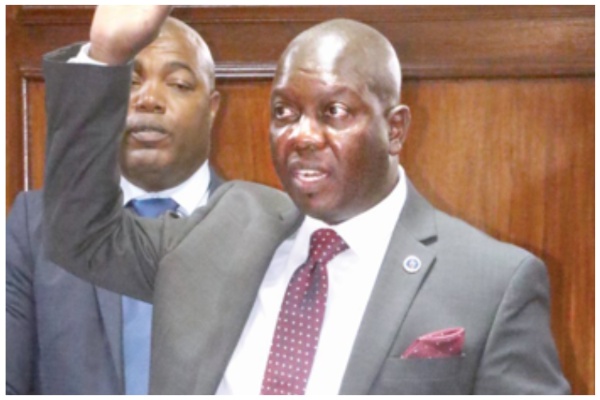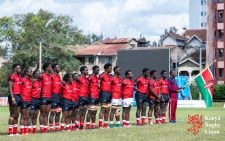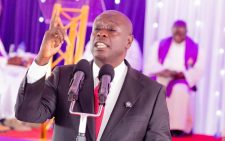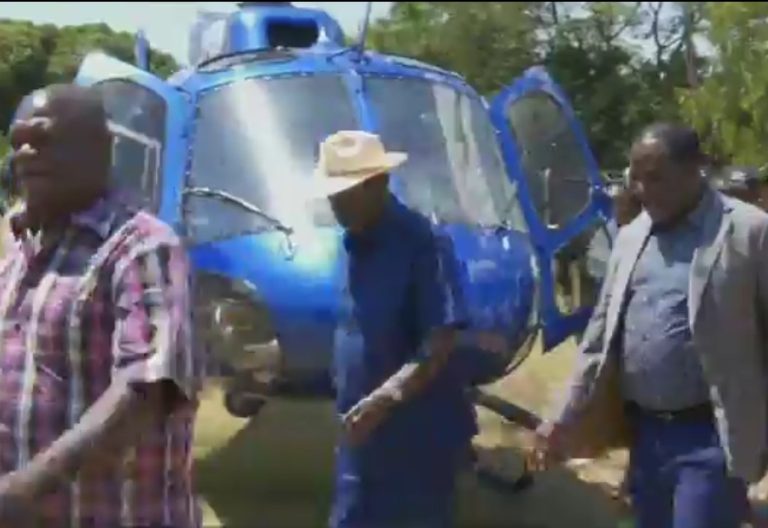Mulele defends decision to withdraw high profile cases

The Office of the Director of Public Prosecutions (ODPP) withdrew several high-profile corruption cases because the evidence adduced in court was false and obtained illegally, MPs heard yesterday.
MPs who sit in the Justice and Legal Affairs Committee (JLAC) chaired by Tharaka MP George Murugara were told that the then Director of Public Prosecution (DPP) Noordin Haji had no option but to withdraw the cases from the court to save taxpayers’ money.
President William Ruto’s nominee to the position of DPP who is also a senior Assistant DPP and Regional Coordinator for North Eastern region Renson Mulele told committee members that should the cases have proceeded to a determination, they would have led to an acquittal which would have given the suspects the window to sue the government for damages.
“We have seen some of the investigators on oath saying that the evidence was illegally obtained and it was also false, which is not right and therefore in that matter the DPP could not continue with the cases so as to save public money,” Mulele told the MPs.
He went to state, “We normally withdraw cases so that the suspect do not go back to court later after an acquittal to sue the government which would see them win the cases. We are lawyers and we know when we are about to lose a case.”
Based on evidence
Mulele told the MPs that withdrawal of the high-profile cases was not a new thing as each year they withdraw about 10 000 cases in various courts across the country as long as they are in concurrence with the courts.
He however explained that the withdrawal of high-profile cases is always based on the evidence adduced in court as the judges have to concur with the DPP that the matter cannot proceed to full trial.
According to Mulele, the DPP has to adhere to certain conditions before making any application in court seeking to withdraw a case. “Under article 134 of the Constitution, the mandate of the DPP is very clear. One of the mandates is to institute criminal investigations and another one is to also withdraw any case in court. The issue of withdrawal of cases is anchored in law but there are factors that must be adhered to before such an application is filed in court.”
While dealing with the corruption related cases he explained that unlike before, they have developed guidelines that the prosecution must follow before such cases are filed in court. “Withdrawal of cases is done on a daily basis. So far we have withdrawn over 10, 000 cases each year but unfortunately we only focus on ten cases that have been withdrawn. But we also have cases where the DPP has gone to court to seek withdrawal and the courts have declined to grant us our prayers.”
His sentiments come hardly months after Haji who is currently the National Intelligence Service (NIS) Director- General dropped almost all corruption and criminal related cases, particularly those facing high profile persons associated with President William Ruto, and were investigated under the former Director of Criminal Investigations (DCI) boss George Kinoti.
Cases dropped
Among the criminal and graft related cases dropped include those against Deputy President Rigathi Gachagua, Agriculture Cabinet Secretary Mithika Linturi, former Kenya Power boss Ben Chumo and Keroche Breweries Director Joseph Karanja — husband to Nakuru Senator Tabitha Karanja.
Others are the murder charges against Public Service Cabinet Secretary Aisha Jumwa and those of Sarah Wairimu over the murder of her late Dutch husband, Tob Cohen and her co-accused Peter Karanja, Thika based tycoon Humphrey Kariuki and activist-cum-business lady Mary Wambui who were facing tax evasion charges of Sh17 billion and Sh2.5 billion respectively and the Sh80 million case against former Samburu Governor Moses Lenolkulal among others.
The withdrawal of the cases sparked debate with a section of Kenyans questioning the timing of the withdrawals, most of which involved close allies of President Ruto, while others defended the move, claiming that some of the allegations were fabricated by the regime of former President Uhuru Kenyatta for political reasons.
Haji had however defended himself over the withdrawal of high-profile corruption cases saying that they were dropped as a result of lack of sufficient evidence and abuse of the judicial process.
“I have no regret for the decisions I made as DPP. Abuse of the judicial processes led to the dropping of those cases. My integrity has not been dented. I stand by the withdrawal of the cases I have made. I need to clarify that the decision to drop a case is not solely done by me, it involves magistrates and judges,” Haji said.
Mulele was responding to a question from Murugara who had sought to know his views on the withdrawal of the high-profile cases and the measures he would take to avoid a repeat of the same. “Recently we have seen high-profile cases that were started a long time ago being withdrawn for lack of evidence. Please comment on them and confirm whether the cases were withdrawn for lack of evidence or because some of them were politically instigated and if they were, tell us the measures you have in store to ensure that the high-profile cases have been concluded,” Murugara had asked.
And Mulele who estimated his wealth to be worth Sh 300m told the committee that to deal with the corruption cases, he would create a specialised cadre of prosecutors dedicated to handling corruption-related crimes.












